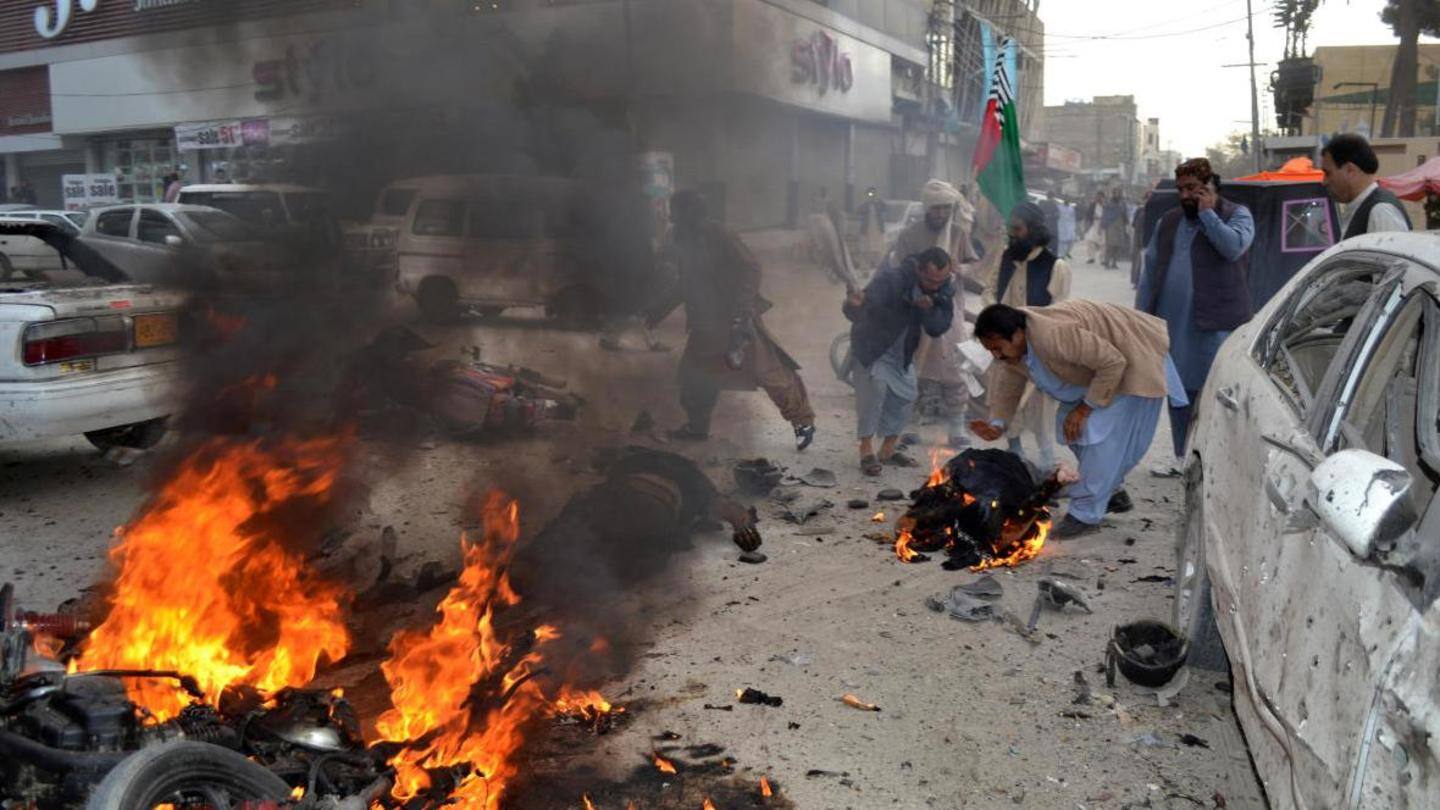
Bombing hits Pakistan Shiite procession, killing at least three
What's the story
A powerful roadside bomb exploded among a procession of Shiite Muslims in central Pakistan on Thursday, killing at least three and wounding over 50 people, local police said.
Videos circulating on social media showed police, ambulances rushing toward the site. Several wounded people were seen waiting for help along a road in the deeply conservative city of Bahawalnagar, where the attack took place.
Tensions
Tensions are now high in the city: Witnesses
City police officer Mohammad Asad and Shiite leader Khawar Shafqat confirmed the bombing. Witnesses said tensions are now high in the city, with Shiites protesting the attack and demanding retribution.
Shafqat said the explosion went off while the procession was passing through a congested neighborhood known as Muhajir Colony. He condemned the attack, urged the government to further step up security at such processions.
Information
Mobile phone services were suspended across Pakistan a day ago
Communications in the area were difficult, as authorities had suspended mobile phone service across the country a day ago ahead of the Shiite Ashura festival. The annual commemoration mourns the 7th-century death of Prophet Muhammad's grandson Hussein, one of Shiite Islam's most beloved saints.
Event
Remembrance of Hussein is an emotional event for Shiites
For Shiites, the remembrance of Hussein is an emotional event that sees many believers weep over his death at the Battle of Karbala in present-day Iraq.
During the Ashura processions, which are held across the world, many participants beat their backs with chains, flagellating themselves in a symbolic expression of regret for not being able to help Hussein before his martyrdom.
Information
Shiites are a minority in predominantly Sunni Muslim Pakistan
Shiites are a minority in predominantly Sunni Muslim Pakistan, where extremist Sunni Muslims view them as apostates deserving of death. In Pakistan, the majority of Muslims are Sunni (85 percent to 90 percent) while Shiites make up between 10 percent and 15 percent.